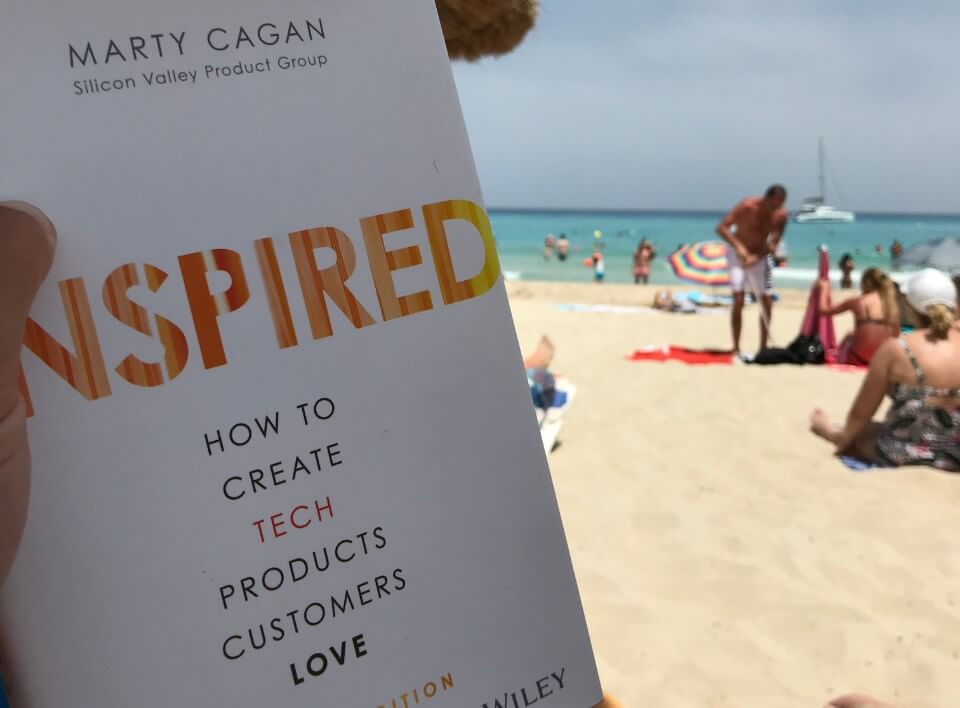tl;dr: It is excellent! Highly recommended, especially if you are working in the tech/internet industry, want to develop your product further, or get insights into this complex role of Product Management. Go, buy, and read it - Inspired by Marty Cagan!

Why did I read this book?
The role of Product Management was vague for me for a long time. There is no apprenticeship or formal schooling around this profession (they are now upcoming). However, during my day-to-day job, I saw successful people in what they are doing while executing the role as a Product Manager, and some are not. I was never able to say what differs.
I want to get started and gain insights into this role because I love to create products that people can use. It is always good to know what you are doing and why you are doing it instead of just blind trial and error. Finally, I want to know what challenges my colleagues are facing daily to understand them better.
What do I like about this book?
Content
INSPIRED provides an excellent overview of the role of a Product Manager. It explains why this role is so important and what makes a good Product Manager. Furthermore, Marty presents essential pieces like getting the right people on board, a good vision plus strategy, and finally planning-, ideation-, prototyping-, and testing techniques. For more content-related reviews, check out the one by Marc Abraham or Damon Allison.
The difference between [Product] vision and strategy is analogous to the difference between good leadership and good management. Leadership inspires and sets the direction, and management helps get us there. Most important, the product vision should be inspiring, and the product strategy should be focused.
Marty Cagan in INSPIRED: How to Create Tech Products Customers Love
Hands-On
The material is practical and delivered in a hands-on fashion. Nearly all of the presented techniques can put into practice directly. To master them takes practice.
People focussed
While concentrating on Product Management, Marty always has the people in mind, too. He emphasizes how important it is to have the right people, how essential it is to train, motivate and guide them through a change. He could ignore the people and focus on the hard skills, but he doesn’t. And this is an essential piece of this book.
Short chapters
The single sections are pretty short (between one and three pages). It makes it a quick and enjoyable read. You can stop and continue everywhere at every time without losing track.
We need teams of missionaries, not teams of mercenaries.
Marty Cagan in INSPIRED: How to Create Tech Products Customers Love
Writing style
This book can be read from cover to cover or in the form of a reference book. I like Marty’s writing style because he doesn’t repeat the same sentence from previous chapters, but you still get enough context about the current section to make use of it.
Focus on tech
The book writes about Product Management for tech products, but I consider those techniques applicable to other kinds of products. The methods might need to be adjusted slightly.
Central theme
Marty emphasizes a recurrent theme throughout the book when it comes to two topics:
- The outcome of your work is essential, not the output
- We need teams of missionaries, not teams of mercenaries
What can make this book better in the next edition?
More examples
Marty explains techniques like Story Maps or Startup Canvas, but how do they look in practice? What are typical mistakes to avoid? Or Customer Letters are mentioned as his preferred technique over Amazon’s Working Backward with the press release. It might be super valuable to show an excellent customer letter, and one which is not so good (and why?). Maybe this is a separate book again. Moreover, this is left as an exercise to the reader.
The outcome of your work is essential, not the output.
Marty Cagan in INSPIRED: How to Create Tech Products Customers Love
Detailed case studies
Marty has included six case studies from Senior Product Managers out of top tech companies (like Jane Manning of Google, Lea Hickmann of Adobe, Alex Pressland of the BBC and more). They are pretty insightful and good reference examples, but they are also very short. Here, I would love to read more details about it. E.g.,
- What techniques were in use? And why?
- How long did the complete project?
- Maybe positive or critical quotes from project members?
- What would the Project Manager do differently next time if she needs to rerun the same project?
Would I recommend reading this book?
Clear yes.
Especially if you think you have a knowledge gap about what Product Management means. To be honest: I had no idea what it means to be an experienced Product Manager. This area is enormous, complex, and challenging. After reading the book, it was more clear that I missed a lot. I am also motivated to try various techniques on a smaller scale (e.g., in side-projects).
I recommend this book to everyone who …
- wants to understand this role more in detail
- is thinking about a career switch into the role of Product Management, or did this recently
- is working in the tech/internet industry and has Product Managers as colleagues
Is there more to read?
Yes, of course:
- Silicon Valley Product Group
- The book The Power of Customer Misbehavior: Drive Growth and Innovation by Learning from Your Customers
- The article Making Good Decisions as a Product Manager
- The article The Greatest Sales Deck I’ve Ever Seen (more focussed on transferring a vision)
- The article The most important thing Dropbox did to scale Product Management